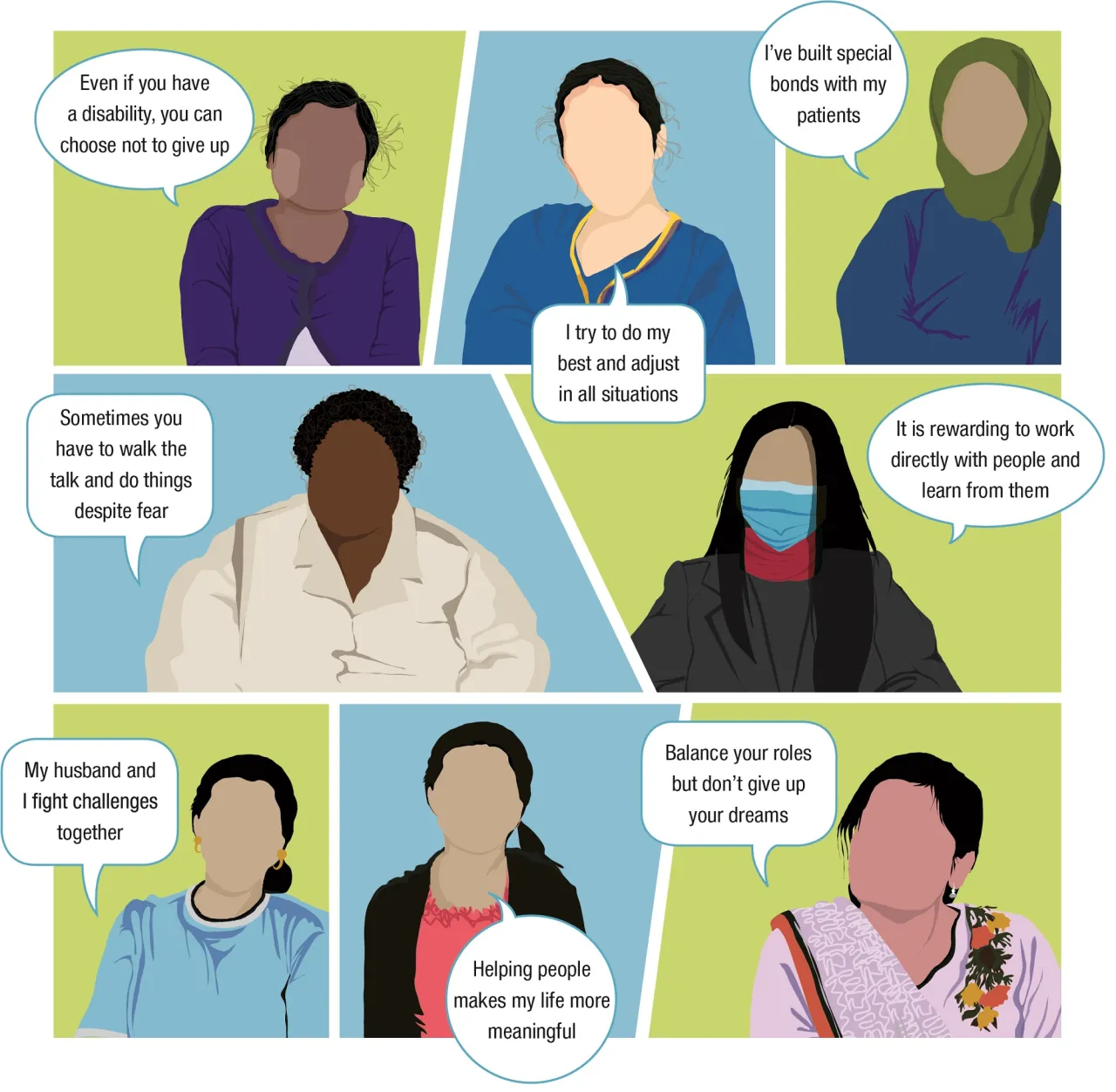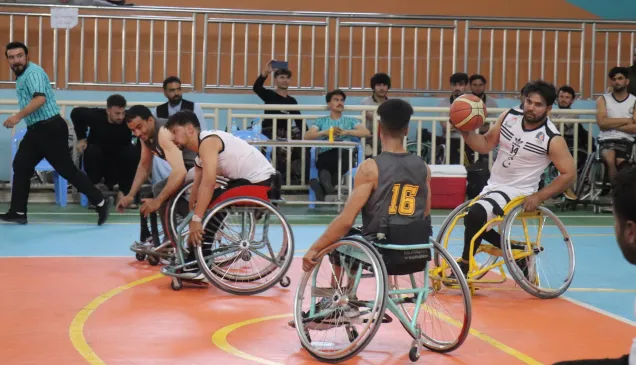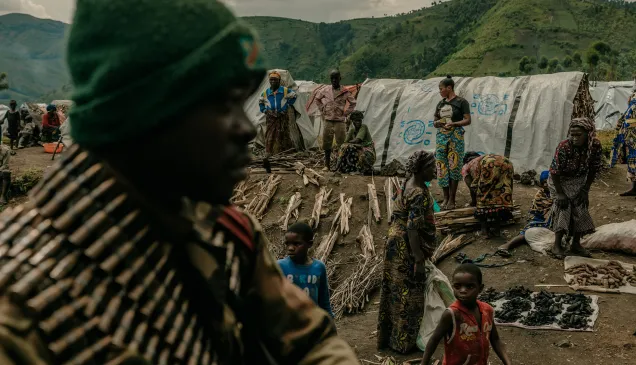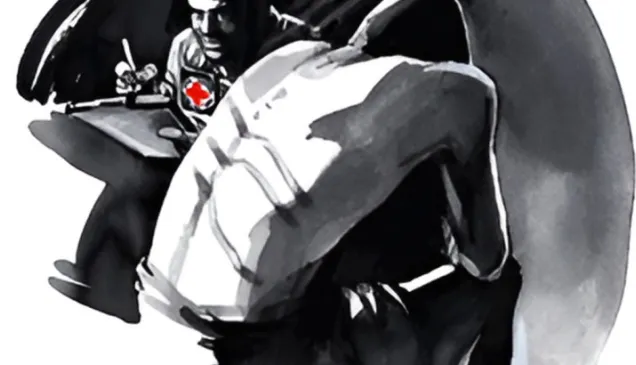She inspires: Breaking the bias this International Women's Day
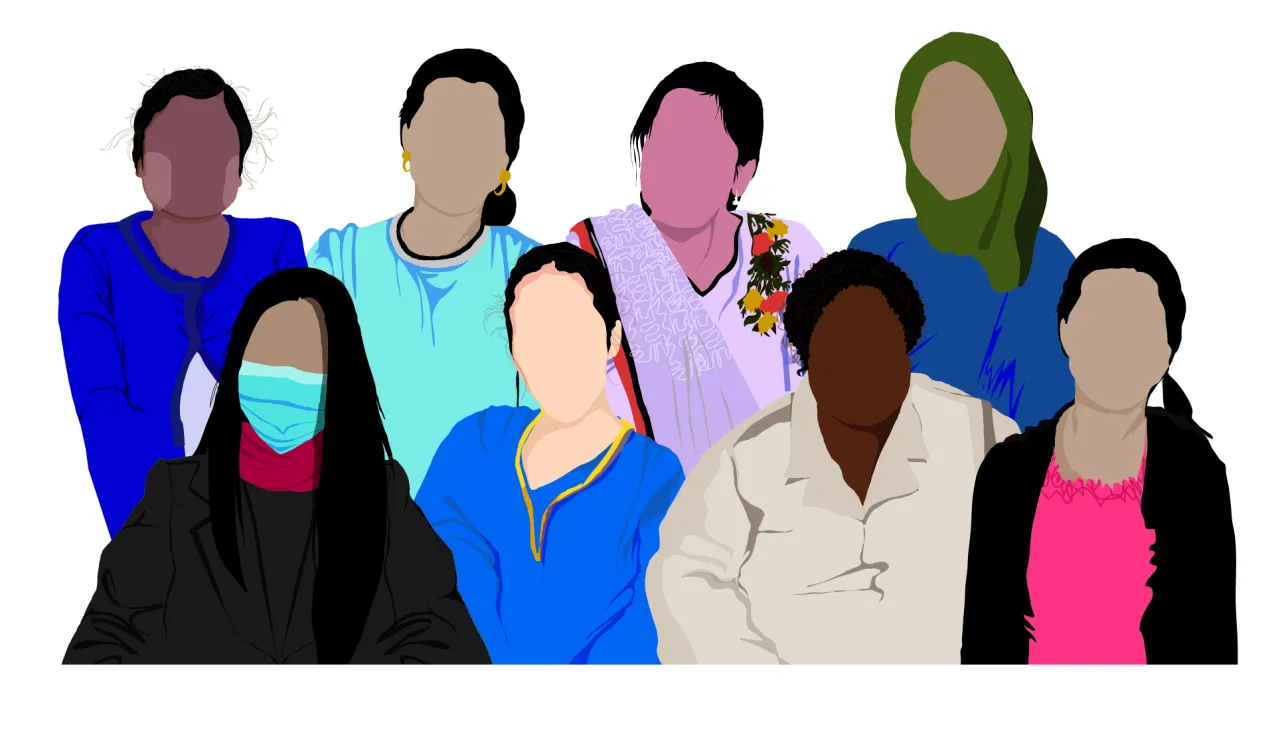
A country in turmoil, a patriarchal society, a community rid with sexual and gender-based violence, a physical disability, a financial crisis, an emotional loss – their settings are different, their challenges are unique but each of their stories are woven together with grit. We give you a peek at the lives of women from the Asia-Pacific region who are rewriting their stories into tales of confidence and raising a strong legacy for the generations to come.
She walks through busy streets or makes her way through corridors lined with patients. She faces the strange glances thrown her way and takes on the snide comments. She listens to stories of pain or offers a word of hope. She farms on her little patch of land or braves unknown dangers to forage for food in the forest. Living in different parts of the region, she bears the scars of a range of challenges.
Some days she falters, some days are really hard, but she keeps finding her balance and keeps pushing on, breaking biases along the way and inspiring us to follow suit. On this International Women's Day, we bring you stories of women in the region who get up each day and stare their challenge in the eye.
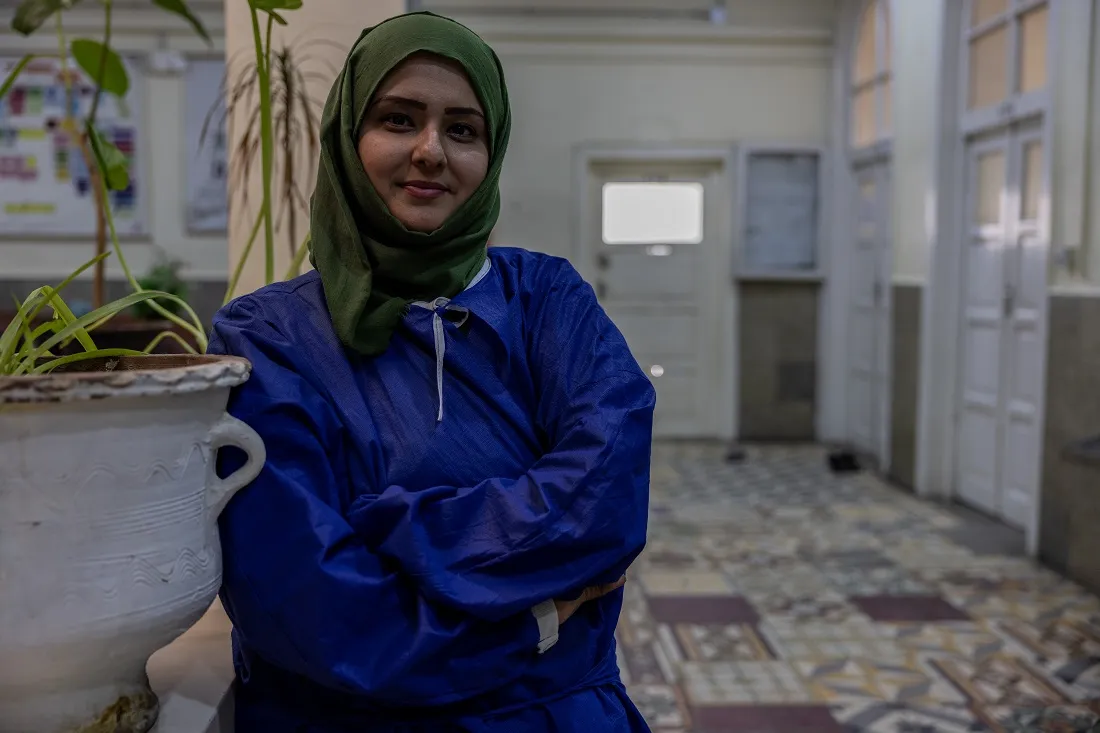
Afghanistan: Doctor chooses to stay and serve
She's 29 years old, a mother of four and a gynaecologist-in-training at the ICRC-supported Rabia Balkhi Hospital in Kabul, Afghanistan. Growing up in Pakistan, Dr Mariam Maqsoodi knew she would follow her parents' lead and become a doctor.
Later, when she moved to her home country Afghanistan after completing her medical studies, she also knew it was where she was meant to serve. So, even though many of her colleagues left the country as violence escalated last year, Dr Mariam chose to stay.
"I see it as my duty to serve women and to listen to them. That's why I am here," she says.
Her story: "I grew up in Pakistan and was educated there and moved back to Afghanistan after finishing my medical studies. Now I am in the third year of my residency and have another one-and-a-half years to go," she says.
Challenges along the way: Dr Mariam starts each day with the hard decision of leaving her children at home and stepping out for another packed day at the hospital.
"Life in Afghanistan is not easy for anyone. The role of gynaecologists is so important here. Even though it is very hard for me to be away from my children throughout the day and we really miss being together, I keep reminding them that I have an important job to do and so I must continue," she says.
The impact: "I've built special bonds with the patients. They begin to trust and share their life stories and even about the problems in their marriages. I hear a lot of stories through the day. I want to be there for them," she says.
Circle of support: "While I am away from home, my mother-in-law cares for my children," she says. "That allows me to continue helping others."
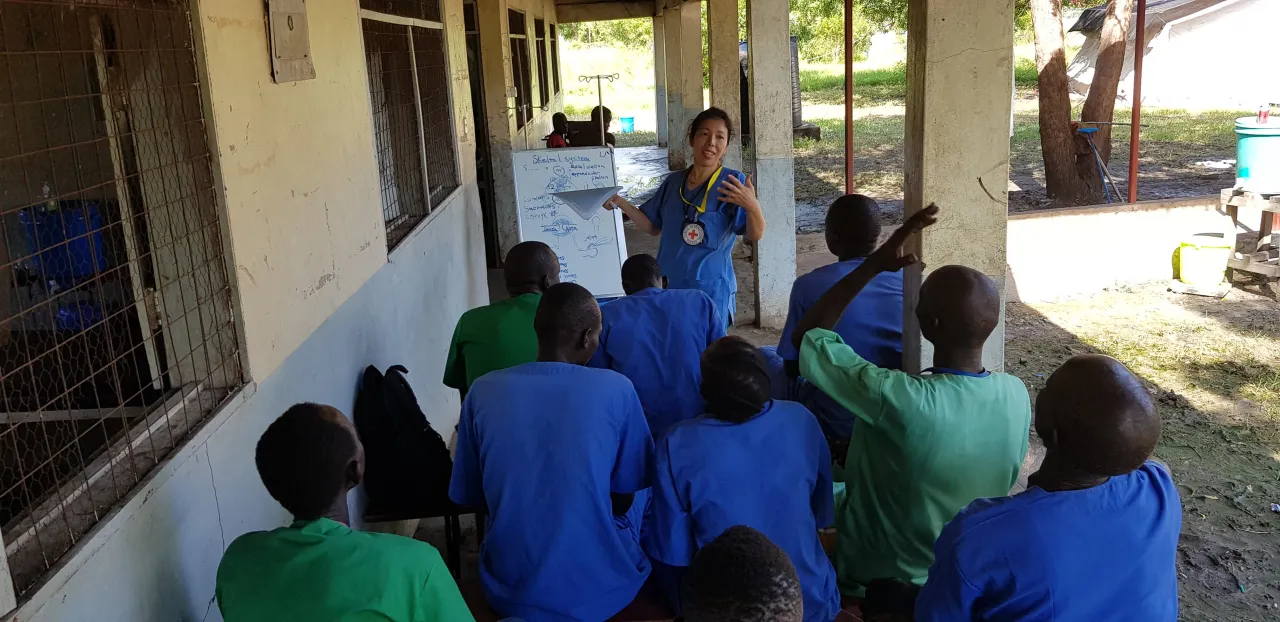
Japan: Nurse overcomes barriers to care for others
She's soft-spoken, ever-smiling and empathetic. For Kozu Tsuda, who is an ER nurse based in west Japan, the power of positivity triumphs over the obstacles she faces when working under challenging conditions. She says she's not very fluent in English, but for humanitarian health-care workers like her, taking care of others is a great unifier as it transcends the barriers of language and region.
Her story: Besides the ICRC, Kozu's journey as an aid worker has included stints with the International Federation of the Red Cross and Red Crescent Societies (IFRC) and the Japanese Red Cross Society, spanning Iraq, Haiti, Bangladesh, the Philippines and South Sudan. She radiates positivity while talking about the tremendous experiences and says, "I try to do my best and adjust in any given situation."
Challenges along the way: Despite her gentle nature and optimistic outlook, Kozu remembers being particularly disturbed when she went back to Cox's Bazar in Bangladesh on her second posting. "Things hadn't improved much but what made me sad was that people had made peace with their situation," she recalls. Another incident while she was in South Sudan left a huge impact and strengthened Kozu's resolve to train local health-care workers and build their capacities. "A baby who had malaria was brought into the paediatric ward. Its heart rate was 40 beats per minute, which is precariously close to death. The doctor and I immediately administered CPR in a desperate attempt to save the baby. But the mother screamed at us to stop! She thought we were putting the baby in danger with the CPR; clearly, she wasn't aware of the resuscitation process. But it was more worrying that in that ward, only the doctor and I knew how to perform CPR."
Learning from this experience, Kozu trained the nurses in CPR and the next time a child was rushed into the paediatric ward and needed to be resuscitated, they were successfully able to do that.
Circle of support: Kozu says given the tough conditions humanitarian workers are sometimes exposed to, it's important for them to have a circle of support and good listeners around. Her current supervisor fits this role for Kozu. "Even my former supervisor in South Sudan was an amazing listener and she looked after me like family," she adds.
Her inspiration: Kozu draws motivation from Mother Teresa and her spirit of service. Echoing the words of Saint Thérèse of Lisieux, patroness of Mother Teresa, Kozu declares, "May you be content with yourself just the way you are," like a mantra for people whom this dedicated nurse continues to inspire daily.
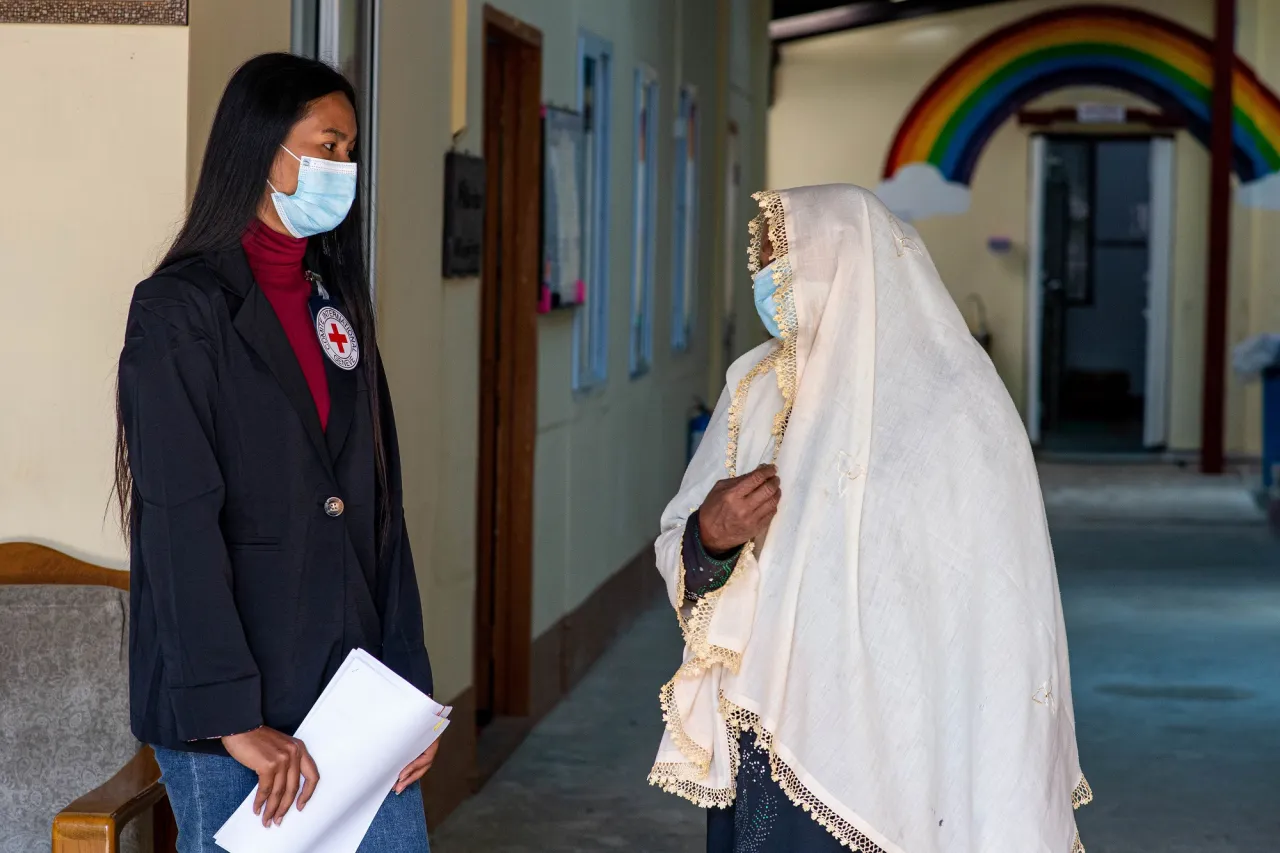
Myanmar: Helping people separated by violence
Naing Naing Oo is part of an ICRC team in Maungdaw that provides a range of support to families separated by violence. The work is collaborative and unceasing. Naing Naing has been with the team since 2017, joining just as outbreaks of violence resulted in waves of displacement, impacting hundreds of thousands of people in Myanmar's Rakhine State.
Her story: Naing Naing Oo remembers meeting a group of children who had survived being stranded at sea. In a small boat, with little food, they drifted for days. "When we talked to them, we were inspired – they had been so strong," says Naing Naing. "They had survived."
Naing Naing was one of the many who had helped the children following the incident. "Now when they see me, they recognize me," she says. "I cannot forget this thing."
A parent who needs financial help to visit a son or daughter in prison. A person recently released from a police lockup who needs assistance making the long journey home. Families looking for lost loved ones after a clash. These are just some instances where Naing Naing and her colleagues try to provide support.
Circle of support: Having worked in a closely-knit team, Naing Naing says, "The first thing I look for is the working environment, which is amazing here. I have lots of support from my colleagues." Beyond the team, it is also the ability to work directly with people in northern Rakhine that is most rewarding. "I can work with communities... learn from them," Naing Naing says.
The impact: "As an organization, we don't take sides. And that makes me feel very comfortable sharing about what we do and who we are with not only the people we work with in the villages, but also the near and dear ones like my family."
The ICRC has worked in Maungdaw, not far from the border with Bangladesh, since 2015. Activities range from emergency aid like food and health services to helping communities build sustainable livelihoods, often together with partners such as the Myanmar Red Cross Society. "Here, lots of people know about the ICRC because of our food distributions," Naing Naing says. "People also know about our work to help reconnect families."
Hope floats: In 2022, the dual impact of the COVID-19 pandemic and the 2021 military intervention continue to linger and overlay the legacies of ongoing conflicts across the country, making life more challenging for people in Myanmar. Despite the obstacles, the numbers tell a story of hope.
Across Myanmar in 2021, we were able to help more than 4,000 recently released detainees return home. We helped people visit loved ones behind bars more than 200 times and delivered close to 250 written messages between separated families.
For Naing Naing, helping people feel comfortable enough to share their stories and needs is key to this work. "It depends on the person, but I don't ask hard questions," she says. "Instead, I ask 'how are you?' That's how we start the conversation."
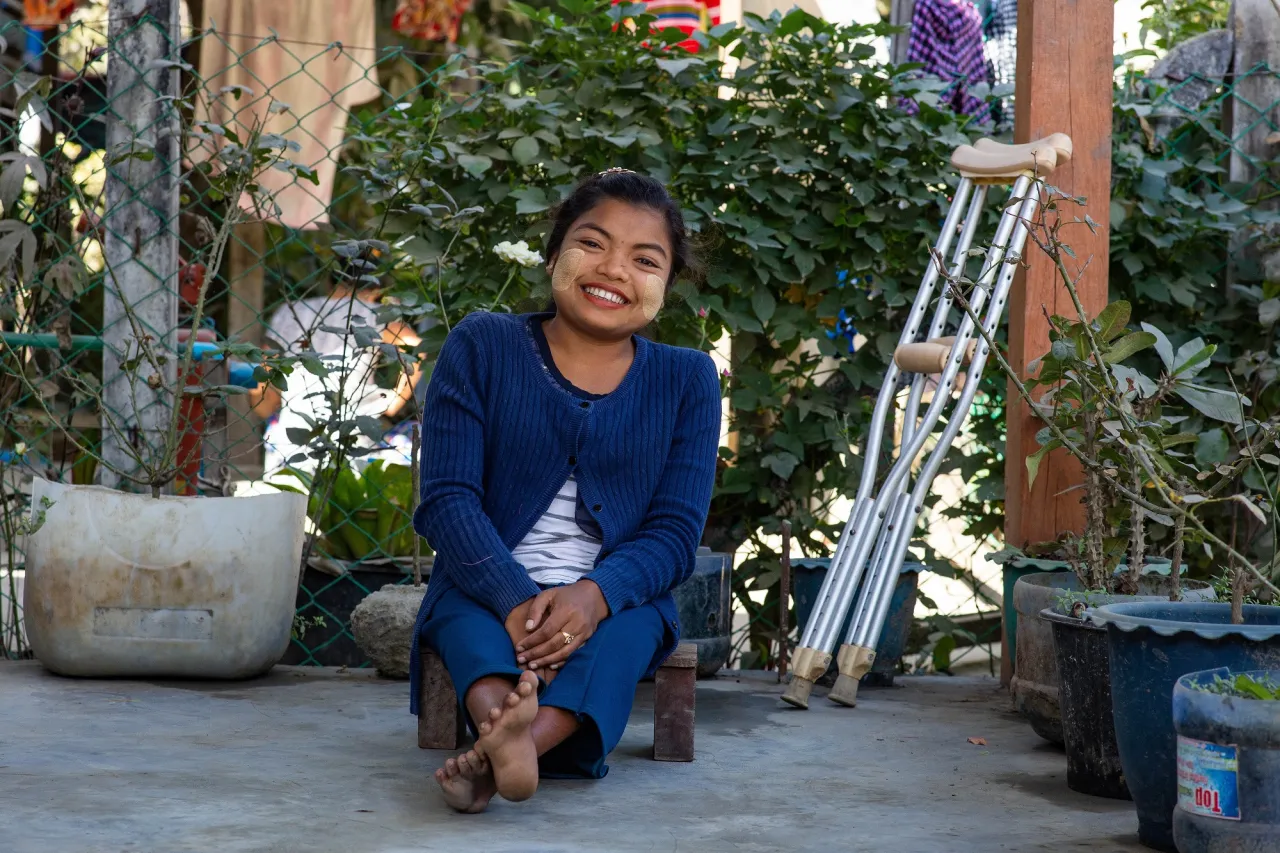
Myanmar: Self-taught tailor challenges disability
In the town of Sittwe in Rakhine State, Khin Myat Myat Kyaw is one of many tailors. But it's her determination for self-learning that sets her apart.
Born with a condition called spina bifida that makes mobility a challenge, Khin Myat Myat Kyaw could not attend school due to lack of accessibility options. Undeterred, she decided to build her own learning path. She taught herself mathematics and the basics of sewing.
"I used go with my sister to the tailor shop where she worked – I would sit for hours, watching her sew," Khin Myat Myat Kyaw says.
"When my sister bought her own sewing machine, I quickly learned to sew and started stitching my own clothes."
We first met Khin Myat Myat Kyaw two years ago and provided her with a wheelchair to make places more accessible for her. Then, a few months ago, Khin Myat Myat Kyaw enrolled in a three-month tailoring course funded by the ICRC, helping boost her self-reliance.
"I'm now able to stitch trousers, skirts, shirts and traditional wear," she proudly shares. Not only does Khin Myat Myat Kyaw support her family with the money earned but she is also able to donate some of the earrings she makes.
"Even if you have a disability, you can always choose not to give up," she says as she gets back to stitching the next colourful piece of clothing on her machine.
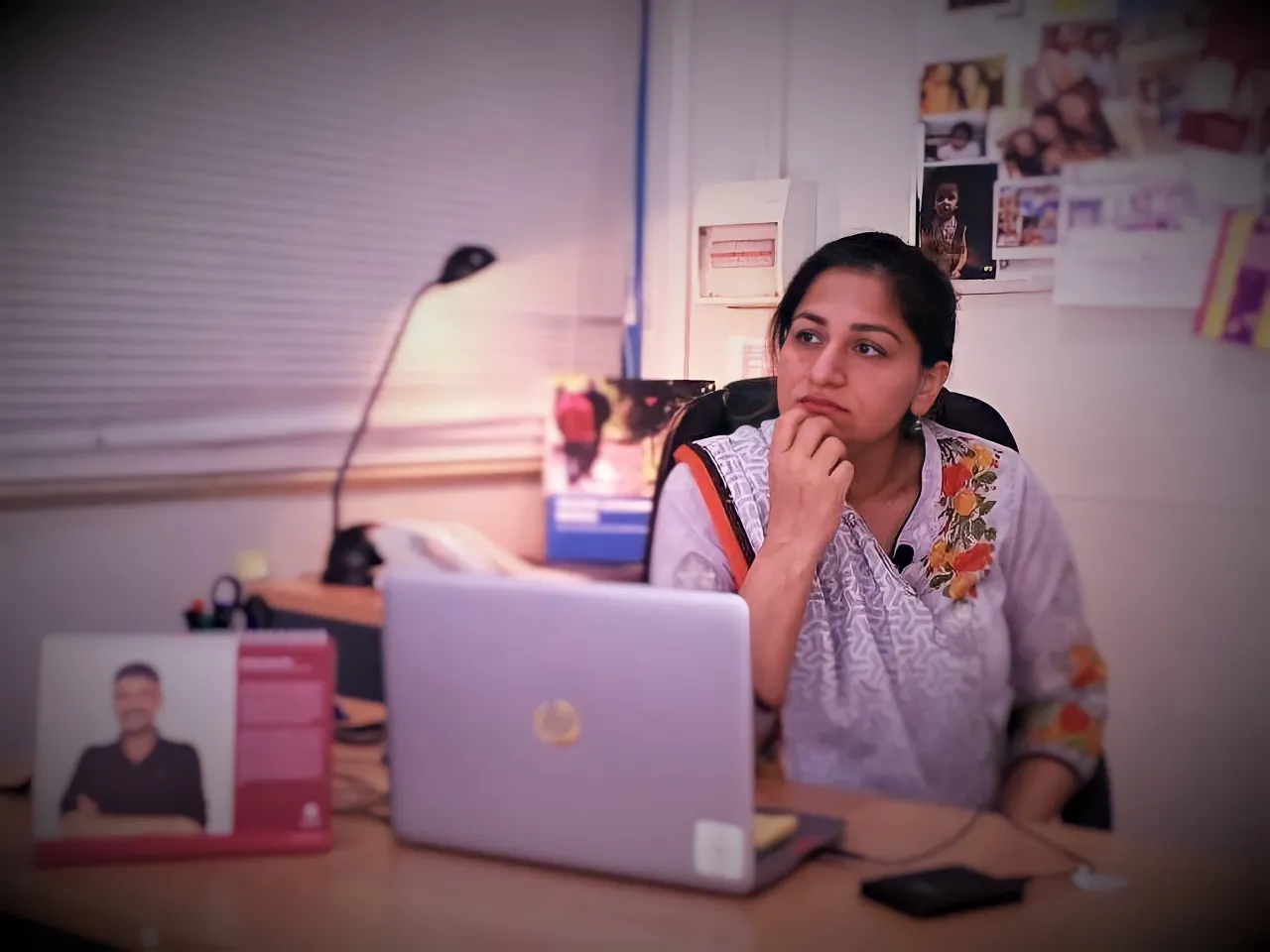
Pakistan: Armed with confidence, she dismisses stereotypes
"People assume that a woman will not know much about explosives and weapons. So, they are often surprised that I work with the Weapon Contamination Unit in the ICRC. Some are quite upfront that they think a woman is not the right fit for the job," says Mahwish Sayeed, who works as a programme coordinator based in Islamabad.
The reactions are not new to Mahwish, who has been in the field for more than a decade. "I have missed many opportunities because of the perception people have about women and because some cannot deal with my logical approach to things. But I continue to do the best I can and keep going forward," she says.
Her story: Mahwish has three daughters and is committed to ensuring she is part of their life experiences. But her work is also very dear to her heart. "We have a diverse team that includes volunteers. We educate communities that are at risk and help to address the complex needs of those affected by unexploded ordnance and their families," she says.
Challenges along the way: "I feel women are burdened with responsibilities before they are even born. We are expected to do well and handle all the responsibilities of being daughters, wives, mothers, students and full-time employees. I think it is important to set boundaries and not feel pressured to be excellent at everything at the same time," she says.
The impact: As a mother, Mahwish is very conscious of her influence in shaping her daughters' view of the world and the part that they play. "I tell them, do not give up your dreams. Balance the different roles but do not lose sight of your own aspirations," she says.
Circle of support: On days that are not packed with things to do, Mahwish finds solace and comfort in the company of her elder sister over a simple cup of tea. "She is a strong woman and catching up with her energizes me," she says.
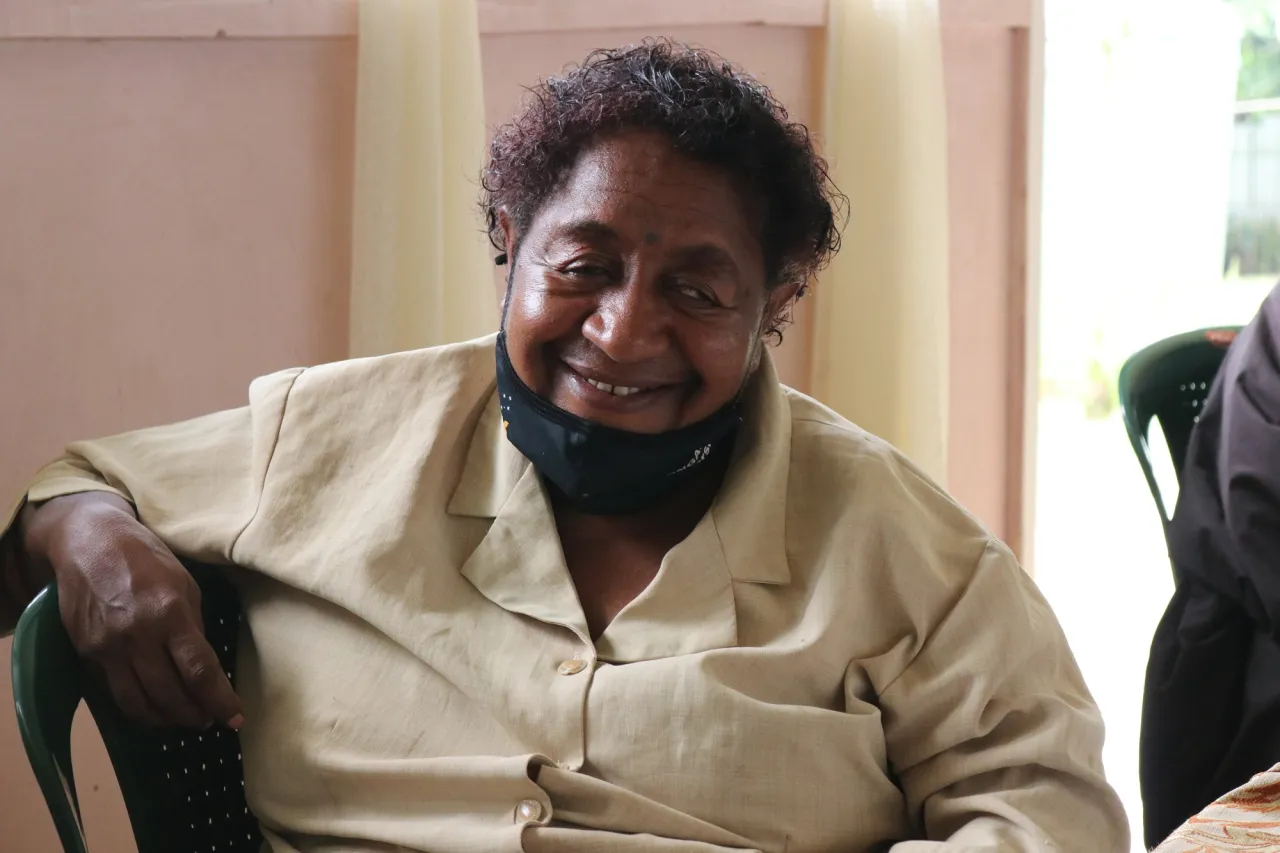
Papua New Guinea: Fighting fears to build a better future
Anna John Lakaio has spent over three decades in defiance by choosing to work as a teacher in Upper Highlands, Papua New Guinea. Anna defies the idea that women should only stay at home, defies her own fear of suffering harm because of the frequent tribal fights, defies the community's expectation that women should remain silent and not participate in decision-making discussions and defies any resistance to getting girls educated or empowering the youth.
Her story: Anna, who recently participated in a workshop organized by the ICRC for teachers, is from Tari in Hela Province and is currently handling the dual responsibility of Provincial guidance and counselling officer and a Provincial secondary school inspector in Hela. A mother of four, Anna sees education as the route for lasting change, be it reducing the humanitarian consequences of tribal infighting or creating a safer space for girls in the community. She does group sessions for raising awareness among students and also offers to counsel individually.
Challenges along the way: "Working as a lone woman among many men is quite challenging. They consider me inferior and I often face discrimination such as not being included in important discussions. But I have worked very hard to serve with dignity and be a role model so that people can trust me," says Anna. She adds that Hela is also the "land of the unexpected" because of the tribal infighting. "It restricts our freedom but sometimes you have to walk, talk and do things despite the fear," she says.
Her inspiration: Anna attributes the shaping of her thought and courage to the principal of a school in Enga where she taught. "Mrs Kisam Tare Muli mentored me and encouraged my passion to help our community. I keep recalling her words even to this day," says Anna. Now she encourages young girls and women to keep doing the right thing and to voice their opinions.
Circle of support: Director for education in Hela Ronny Angu, her colleagues and her family are Anna's support system. "For issues related to women and children, I reach out to my friends in the Hela Education Women's network," she adds.
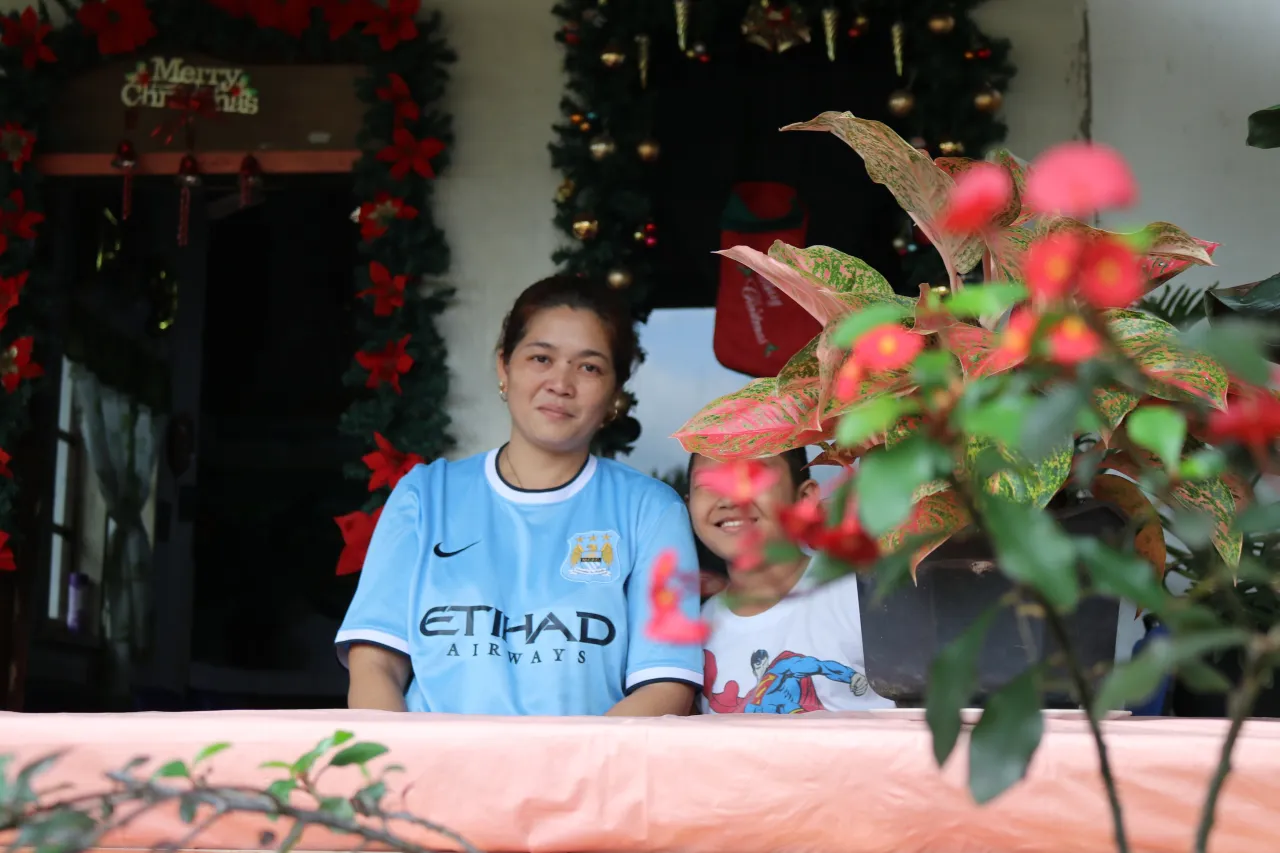
Philippines: A mother's strength gives hope
Analyn Repdos' son, JP, was four years old when he walked for the first time. She celebrated the moment as a milestone especially for her son, who was diagnosed with cerebral palsy. Caring for a child with special needs can be a challenge for any parent and for Analyn it has been more challenging because of financial crunch. But Analyn is full of hope and believes that life will get better for her son as he gets help from the Davao Jubilee Foundation (DJF), a non-profit rehabilitation facility for disabled people in Mindanao (Philippines) supported by the ICRC.
Her story: Analyn, 38, grew up in tough circumstances. "My father's income was barely enough to support the family, so we had many difficulties. Even after growing up and getting married my life did not become any easier," she says. JP was diagnosed with cerebral palsy when he was only about one-and-a-half years old. "Since then the entire family's focus has been on taking care of him. But he is improving and is now enrolled in a school for children with physical or mental challenges," says the mother of two.
Challenges along the way: Helplessness was Analyn's first response when her son's condition was diagnosed. "It was hard and we wondered how we would pay for his therapy. I was also concerned about how people will treat my son. Even now, when we ride a jeepney (local transport) some people stare at JP. It pains me as a mother because I feel he is being judged," she says.
Her inspiration: Analyn shares that her relationship with God keeps her hopeful. "Although there are times when I question God, being faithful to Him and believing that He has good plans for us keeps me positive. Also, my sons are an inspiration to me. I love them and want the best for them, so I am willing to take on the challenges," she says.
Circle of support: Talking about the strength she draws from her husband and her family, Analyn says, "My husband is a man full of hope and a spirit to fight whatever we face. Both our families have also been a great support system to us. I cannot forget how my youngest brother took care of most of our pending hospital bills, even selling his car to help us and never asking us to pay him back. Our families understand our situation and have been there for us. I couldn't be more thankful."
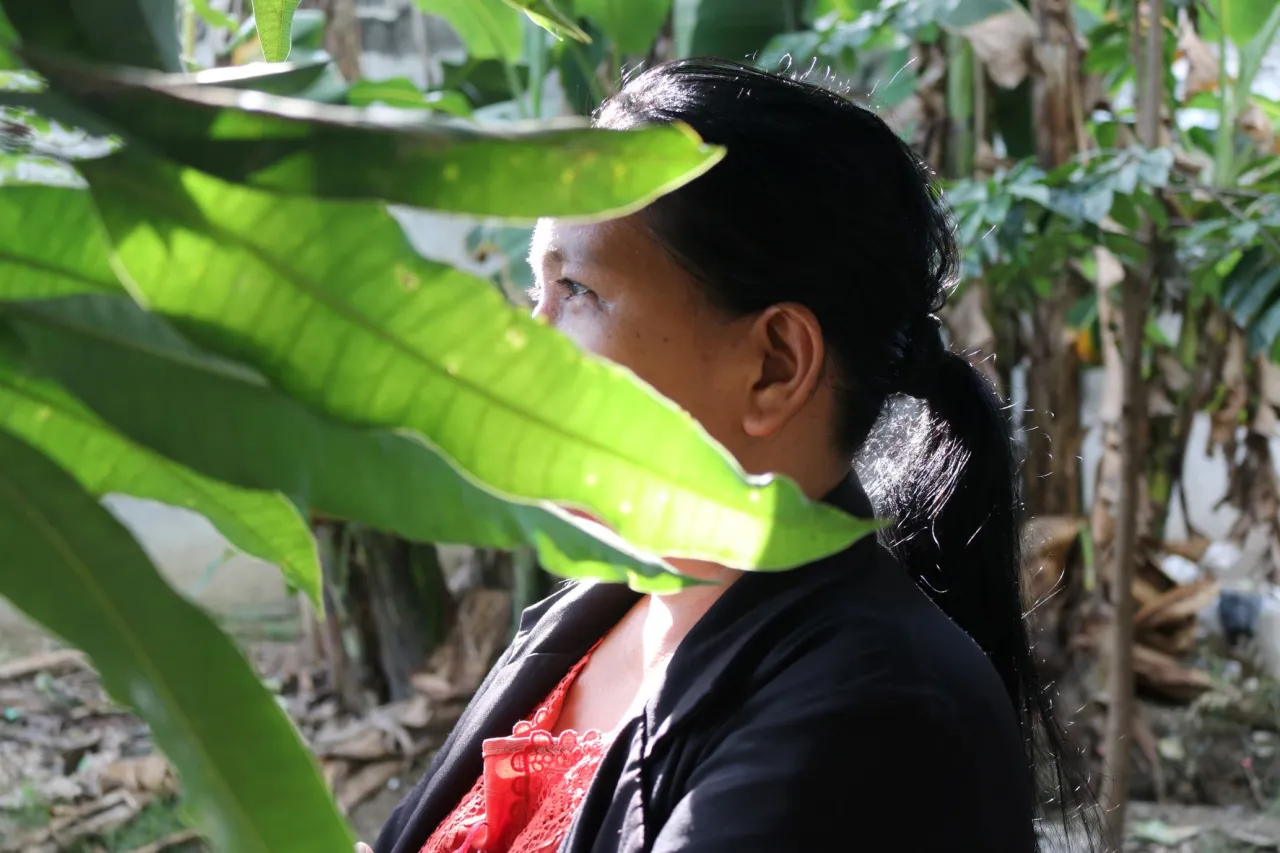
Philippines: Rising from the ashes of Marawi
The five-month-long armed conflict that broke out in Marawi City, southern Philippines, in 2017 was a personal crisis for Isabel*. Her husband and son disappeared and still remain unaccounted for. While dealing with her sense of loss, Isabel talks about getting involved with the ICRC's accompaniment programme (a support programme providing holistic and wide-ranging assistance to families of the missing) and helping others cope with their challenges.
Her story: Since her husband and son disappeared, 43-year-old Isabel has been living in ambiguity about what happened to her loved ones. "It is the hardest thing I have faced," she says. Trained as an accompanier by the ICRC's Mental Health and Psychosocial Support staff, Isabel leads peer support group sessions in her community. Since 2020, she has helped 22 families of missing people in three groups of six to eight families each.
Challenges along the way: "Taking on the breadwinner's role abruptly was difficult. I used to work night and day, juggling multiple jobs, to support my family of six. I also struggled with reintegrating into the society. It was easy for people to tell me to just accept that my son and husband had died, but not seeing their remains or having any trace of them makes us think otherwise. We still nurse a small hope that they'll come back to us, alive," shares Isabel.
Her inspiration: Isabel says that supporting other families of missing people gives her strength and gives meaning to her struggles as she can identify with them. "I feel a sense of relief in knowing that something good came out of my misfortune. Helping people makes my life more meaningful," she says.
Circle of support: Isabel leans on her children and the families of missing people for support. "Having people to dedicate your hard work to and shower your love on makes life more bearable. We don't have much, but we have each other and that's everything," she says.
(*Name changed to protect identity)
